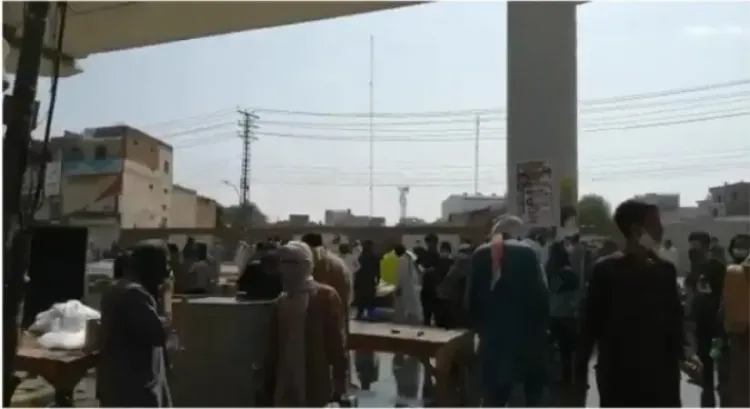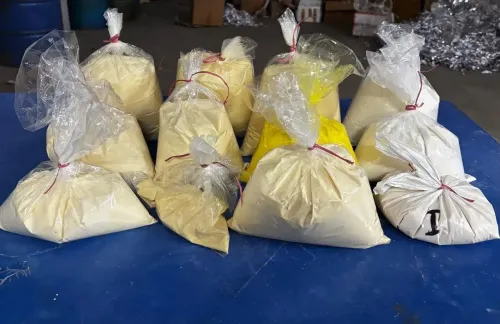Could Ahl-e-Sunnah Pakistan's New Alliance Push Pakistan into Deeper Turmoil?

Synopsis
Key Takeaways
- Emergence of Ahl-e-Sunnah Pakistan could destabilize Pakistan.
- TLP's demands for justice are gaining traction.
- Internal challenges are compounding external threats.
- Support from major political figures adds strength to the protest.
- Government's preemptive measures may fuel further unrest.
New Delhi, Oct 17 (NationPress) A newly forming alliance poses a significant threat to the Pakistan establishment, which is already grappling with challenges on various fronts.
Uniting multiple religious factions in Pakistan, including the Tehreek-e-Labbaik Pakistan (TLP), this coalition, referred to as Ahl-e-Sunnah Pakistan, is warning of serious repercussions if their demands regarding the Muridke massacre are ignored.
The TLP has garnered media attention after its members were killed by security forces during a protest in Muridke.
The alliance's demands include the release of all TLP members, followed by negotiations with the government.
However, the primary motivation behind this coalition's formation is to protest against the killings of TLP members during a peaceful demonstration in Muridke last week.
Pakistan is already entangled in numerous conflicts, with the latest involving the Afghan Taliban.
While Islamabad is addressing external threats, the country faces a more pressing issue with numerous internal challenges.
Indian intelligence agencies are closely monitoring these developments.
Officials have expressed that the protests initiated by the TLP-led coalition will pose a major concern for the security apparatus in Pakistan. This alliance has significant support from various political groups.
Additionally, they are backed by numerous religious leaders, enhancing the coalition's potential impact.
The Pakistani establishment is not underestimating this alliance. Recently, support for the TLP has surged across the nation. Thousands are expected to participate in the sit-ins and protests scheduled to follow a meeting on October 22.
These rallies are aimed at opposing both the Punjab and federal governments.
Former Prime Minister Imran Khan has directed members of his party, Pakistan Tehreek-e-Insaf (PTI), to support the TLP and join in the demonstrations.
Imran Khan's party joining forces with Ahl-e-Sunnah adds to the establishment's troubles.
Another unsettling development for the establishment is the support for the TLP from the newly appointed Khyber Pakhtunkhwa (KP) Chief Minister, Sohail Khan Afridi, of the PTI, who has urged his party workers to stand in solidarity with the TLP's movement.
Pakistan is already dealing with insurgency in KP; the chief minister's endorsement of the TLP raises further concerns. The upcoming weekend in Pakistan is expected to be highly tense.
All attention is directed towards peace talks scheduled in Doha between Islamabad and the Taliban. While analysts suggest that the situation with the Taliban remains precarious, Pakistan faces even greater challenges internally.
The ongoing conflict with the Tehreek-i-Taliban Pakistan (TTP) continues to be a significant headache.
Furthermore, trouble is anticipated in Balochistan from the Balochistan Nationalist Army (BLA).
Additionally, the situation in Pakistan-occupied Kashmir (PoK) is tense due to local protests.
The TLP-led coalition's upcoming protest, supported by many political and religious leaders, adds to the multitude of issues.
In response to the TLP's announcement, the Punjab government has enacted Section 144 and prohibited all forms of gatherings, rallies, and processions.
While security measures are in place, Indian officials are concerned that this protest may escalate into violence.
Previously, the Pakistan establishment suppressed protesters in Muridke through deadly force. If similar tactics are employed this time, it could further galvanize the movement nationwide, presenting the establishment with another significant internal challenge.









